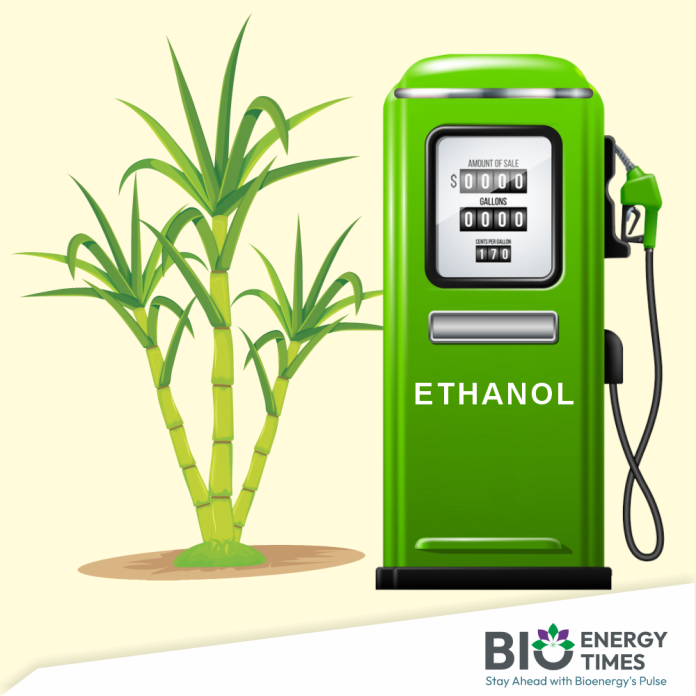The Ministry of Petroleum and Natural Gas (MoPNG) has issued a comprehensive statement addressing recent media reports that raised concerns about the impact of 20% ethanol blending (E20) in petrol on vehicle performance, particularly in older models. The Ministry refuted these claims, describing them as largely unsubstantiated and lacking support from scientific studies or real-world data.
According to the Ministry, both Indian and international research indicates that E20 does not significantly affect engine performance, fuel economy, or the longevity of vehicles.
In its response, the Ministry cited that international studies on the effect of using Ethanol-Petrol Blends on Mechanical, Energy and Environmental Performance of Vehicles through testing of carbureted and fuel-injected vehicles every 10,000 km during their first 100,000 km showed statistically no significant differences in power and torque generated and fuel consumption. Material compatibility and drivability tests by Automotive Research Association of India (ARAI), Indian Institute of Petroleum (IIP) and Indian Oil Corporation (R&D) have confirmed that legacy vehicles also showed no significant variations, performance issues or abnormal wear-and-tear when operated with E20. Moreover, E20 fuel passed hot and cold startability tests without any engine damage.
Addressing fuel efficiency, the Ministry said that the ethanol, being lower in energy density than petrol, results in a marginal decrease in mileage, estimated at 1–2% for four-wheelers designed for E10 and calibrated for E20, and around 3–6% in others. However, this minor reduction can be minimized through better engine tuning and the use of E20-compatible materials, already adopted by leading automakers. The Society of Indian Automobile Manufacturers (SIAM) has confirmed that E20-compatible vehicles began rolling out from April 2023. Hence, claims of a drastic mileage drop are inaccurate.
On material compatibility, the Ministry explained: “E20 safety standards include corrosion inhibitors and materials designed to handle ethanol blends, as per BIS and Automotive Industry Standards. In some older vehicles, rubber parts or gaskets may need replacement after 20,000–30,000 km of E20 usage. These replacements are inexpensive and can be carried out during routine maintenance.”
Regarding environmental impact, the Ministry emphasized ethanol’s role as a cleaner alternative to fossil fuels, reducing carbon dioxide emissions. India’s ethanol production now includes a variety of feedstocks—such as surplus grains, damaged food crops, and agricultural residues—under its second-generation (2G) biofuels initiative. A Niti Aayog life-cycle emissions study found that ethanol derived from sugarcane and maize reduces greenhouse gas emissions by 65% and 50%, respectively, compared to petrol.
The Ministry also highlighted ethanol’s technical benefits: “With a higher octane rating (~108.5 compared to petrol’s ~84.4), ethanol contributes to higher-octane fuel blends (~95 RON), which are well-suited for modern high-compression engines. This results in better ride quality and improved performance. Ethanol’s higher heat of vaporization also cools the intake manifold, increasing air-fuel mixture density and enhancing engine efficiency.”
E20 blending contributes to India’s energy security by lowering dependence on crude oil imports. Since 2014-15, ethanol substitution has saved over ₹1.4 lakh crore in foreign exchange. It has also generated over ₹1.2 lakh crore in payments to farmers, supporting rural incomes and job creation in the agriculture and biofuel sectors. Additionally, E20 has helped reduce carbon emissions by 70 million tonnes, aligning with the country’s climate goals.
The Ministry clarified that the E20 rollout has not been sudden or uncoordinated. It follows the “Roadmap for Ethanol Blending in India 2020–25,” published on MoPNG and Niti Aayog’s websites since 2021. The phased implementation was developed through extensive consultations with vehicle manufacturers, fuel retailers, standards bodies, and government agencies.
“The notion that ethanol blending harms vehicles or causes unnecessary inconvenience to consumers lacks a factual and scientific basis. Ethanol blending is a strategic, evidence-backed, and environmentally responsible initiative offering broad national benefits,” the Ministry concluded.














